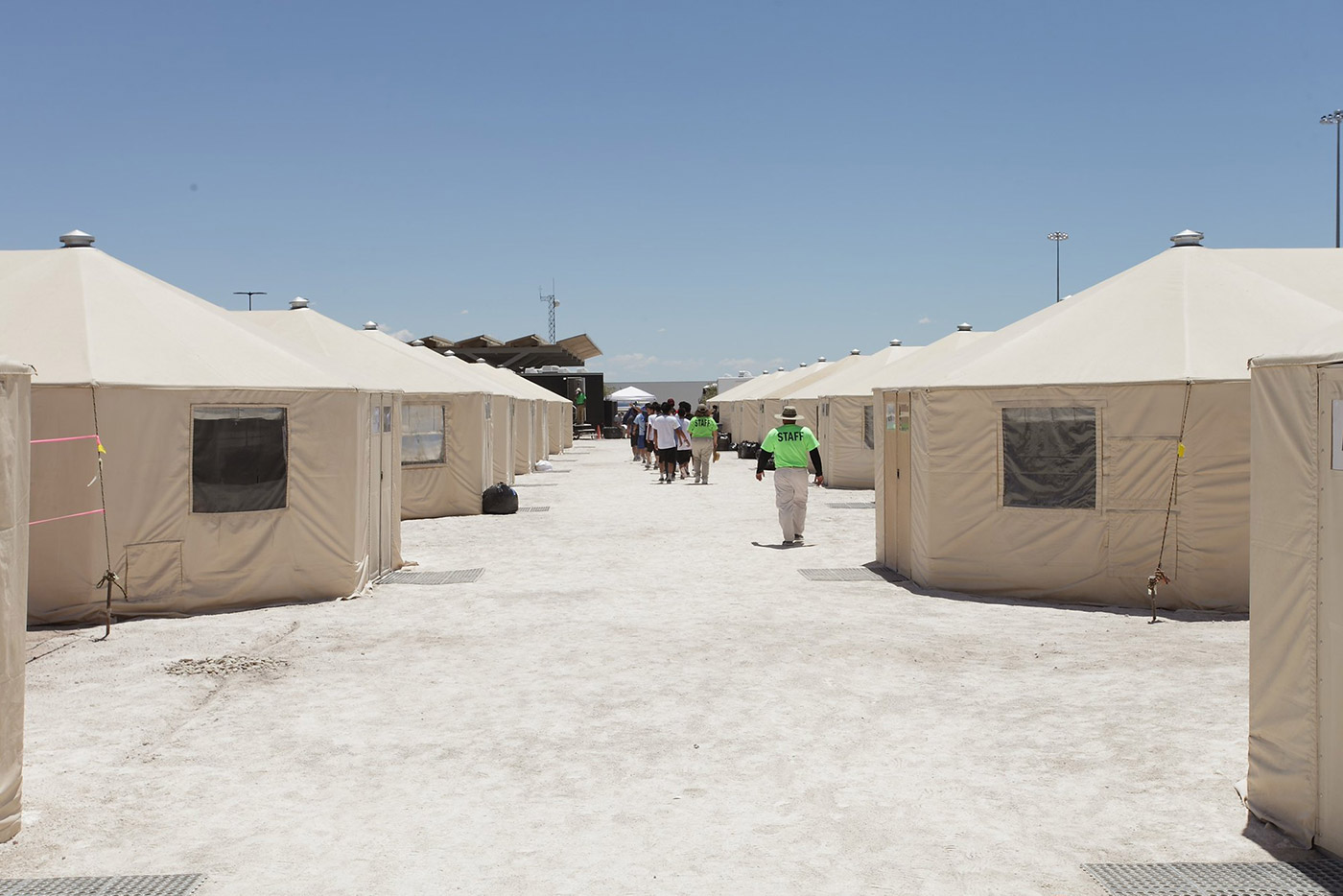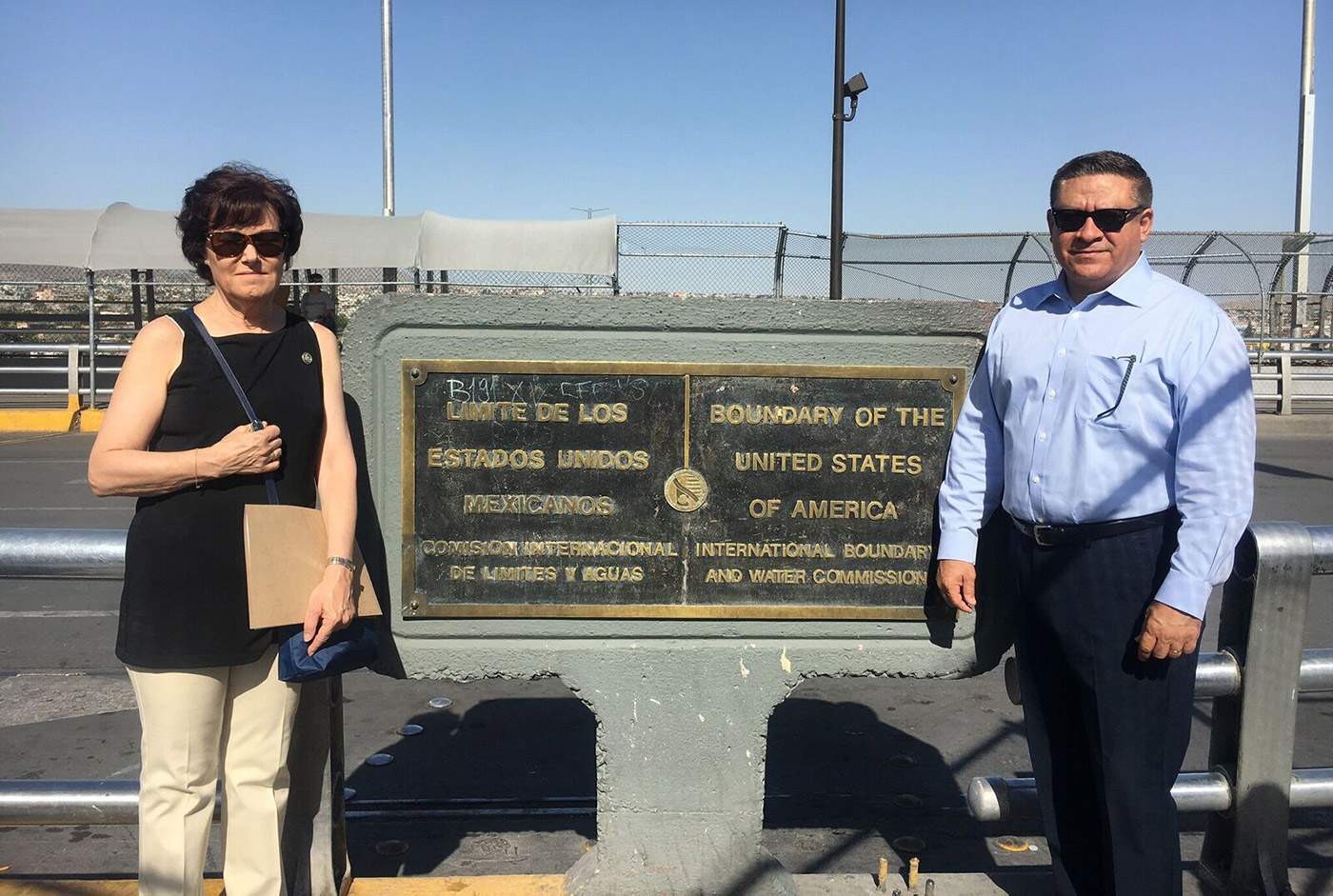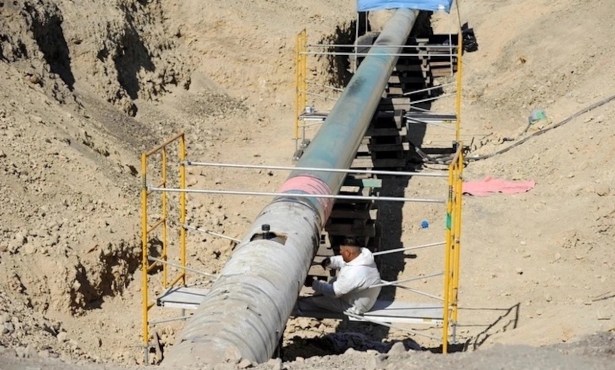
Congressmember Salud Carbajal visited the Tornillo detention facility about 30 miles southeast of El Paso, Texas, on June 5 with Congressmember Jacky Rosen from Nevada. The tent city was opened to transfer older immigrant children who have been separated from their parents or crossed the border as unaccompanied minors to make room for younger, “tender age” children at the detention centers. The tent city, described by Carbajal as “no different than a tent city in the Middle East,” currently holds 319 minors ages 13-17. Most are boys from Guatemala, Honduras, and El Salvador, but 26 girls were brought into the facility recently. “Very few are from Mexico,” said Carbajal. The facility has the capacity to hold more than 400 kids and is being operated by a private contractor. “They’re trying to do their best, but it’s far from the type of adequate facilities we should have for children,” Carbajal said. Children complained about being woken up at 5 a.m. and only being allowed five minutes to shower.
The tent city is in the middle of the Texas desert, where temperatures regularly reach more than 100 degrees. Because of the heat, children have limited time for outdoor recreation. They have limited education material, too, said Carbajal. “Except for a few board games, they don’t have much else.” The children are allowed two 10-minute calls a week. “The bottom line is that it’s heart-wrenching to see children incarcerated,” said Carbajal. “We’re not treating them like children.”

During his tour, Carbajal observed Customs and Border Protection (CBP) officers in Juárez, Mexico. “The most disturbing thing I saw was the violation of the three-day-hold limit with kids,” he said, explaining that before being transferred to long-term detention, children are housed in CBP facilities. It is illegal to keep children at such facilities for more than three days, but a disconnect between CBP and the Department of Health and Human Services — in charge of long-term detention — makes it difficult to transfer children within the 72-hour window. Carbajal is also concerned about the reunification of families: “We don’t know details. We have a lot of questions and not enough answers.”



